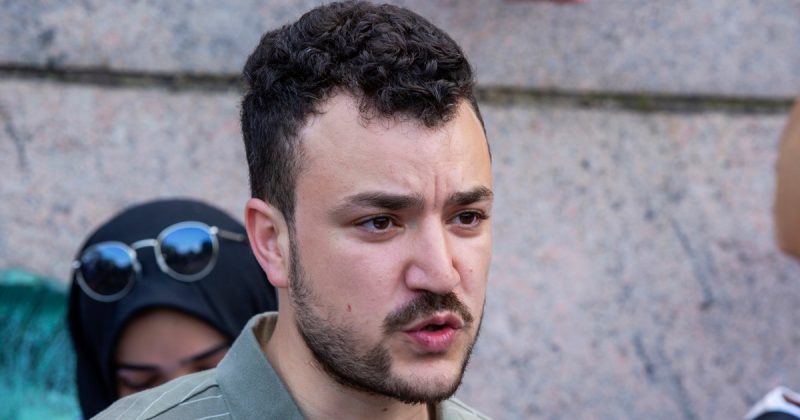
A Louisiana immigration judge has issued a 24-hour ultimatum to the federal government, demanding evidence to justify its attempt to deport Mahmoud Khalil, a Columbia University student and prominent pro-Palestinian activist. The order, issued Tuesday, comes after Khalil, a permanent US resident, was arrested in March and transferred to a Louisiana detention center.
The Trump administration’s case relies on a rarely used provision in immigration law, claiming Khalil’s activities pose ‘serious adverse foreign policy consequences’ for the United States. They also allege he withheld information on his memberships and employment in his residency application. However, Khalil’s legal team vehemently denies these claims, stating that no evidence has been presented to support the government’s accusations.
Marc Van Der Hout, one of Khalil’s attorneys, highlighted the lack of evidence, emphasizing the government’s failure to substantiate its allegations. He described the government’s position as ‘outrageous’ and characterized the lack of evidence as a complete absence of support for their case. The Justice Department has yet to respond to requests for comment.
The government alleges Khalil’s activities were aligned with Hamas, a designated terrorist organization. Khalil’s legal team refutes this, asserting there’s no proof of any support for terrorist organizations. White House Press Secretary Karoline Leavitt further alleges Khalil organized disruptive protests and distributed pro-Hamas propaganda on campus, though Khalil is not known to face any criminal charges.
The immigration judge, Jamee Comans, scheduled a follow-up hearing for Friday. This hearing will determine whether Khalil will be deported or released. If deemed deportable, his legal team can pursue further avenues for relief. Khalil’s attorney expressed concern about the short timeframe, suggesting it leaves insufficient time for a proper defense, potentially violating Khalil’s due process rights.
Adding a poignant personal touch to the legal battle, Khalil’s wife, Noor Abdalla, penned a heartfelt letter to her husband, expressing her deep longing and anxiety about his potential absence during the imminent birth of their first child. The case continues to draw significant attention, raising important questions about due process and the potential misuse of immigration laws.










